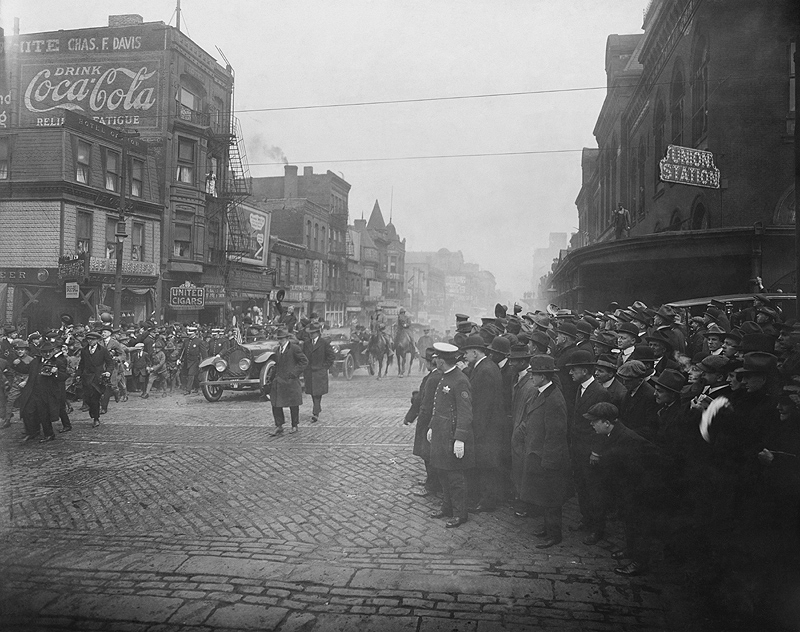A group of Evanston, Illinois, residents are suing their city government over a $20 million scheme to give away $25,000 each to Black residents as “reparations” for wrongs experienced by past generations.
The nonprofit public interest law firm Judicial Watch announced it “filed a class action lawsuit against Evanston, Illinois, on behalf of six individuals over the city's use of race as an eligibility requirement for a reparations program which makes $25,000 payments to black residents and descendants of black residents who lived in Evanston between the years 1919 and 1969.” (RELATED: San Francisco Debates $5 Million Per Person Reparations Proposal)

“The Evanston, Illinois' ‘reparations' program is nothing more than a ploy to redistribute tax dollars to individuals based on race,” said Judicial Watch President Tom Fitton. “This scheme unconstitutionally discriminates against anyone who does not identify as Black or African American. This class action, civil rights lawsuit will be a historic defense of our color-blind Constitution.”
“Through a series of resolutions, the Evanston City Council created a program to provide $25,000 cash payments to residents who lived in Evanston between 1919 and 1969 and their children, grandchildren, and great-grandchildren,” JW reports, after filing a class action, civil rights lawsuit which challenges “on Equal Protection grounds Defendant City of Evanston's use of race as an eligibility requirement for a program that makes $25,000 payments to residents and direct descendants of residents of the city five-plus decades if not more than a century ago. Plaintiffs seek a judgment declaring Defendant's use of race to be unconstitutional. Plaintiffs also seek an injunction enjoining Defendant from continuing to use race as a requirement for receiving payment under the program and request that the Court award them and all class members damages in the amount of $25,000 each.”

JW argues “the program violates the Equal Protection Clause of the Fourteenth Amendment because:”
Remedying societal discrimination is not a compelling governmental interest. Richmond v. J.A. Croson Co., 488 U.S. 469, 505 (1989); see also Regents of Univ. of Cal. v. Bakke, 438 U.S. 265, 307 ((1978) (opinion of Powell, J.) (describing “societal discrimination” as “an amorphous concept of injury that may be ageless in its reach into the past.”) Remedying discrimination from 55 to 105 years ago or remedying discrimination experienced at any time by an individual's parents, grandparents, or great grandparents has not been recognized as a compelling governmental interest…
Defendant also has not and cannot demonstrate that its use of a race as an eligibility requirement is narrowly tailored. Among other shortcomings, Defendant's use of race as a proxy for experiencing discrimination between 1919 and 1969 does not limit eligibility to persons who actually experienced discrimination during that relevant time period and therefore is overinclusive. Defendant also failed to consider race-neutral alternatives, such as requiring prospective recipients show that they or their parents, grandparents, or great grandparents actually experienced housing discrimination during the relevant time period because of an Evanston ordinance, policy, or procedure, as Defendant requires for the third group of prospective recipients. Nor did Defendant take into account race-neutral anti-discrimination remedies before adopting its race-based eligibility requirement.
According to JW, the program works as follows:
The first group of persons eligible for the $25,000 payments are current Evanston residents who identify as Black or African American and were at least 18 years of age between 1919 and 1969. Evanston refers to this group as “ancestors.”
The second group are individuals who identify as Black or African American who are at least 18 years of age and have at least one parent, grandparent, or great grandparent who identifies (or identified) as Black or African American, lived in Evanston for any period between 1919 and 1969, and was at least 18 at the time. Evanston refers to this group as “direct descendants.” A “direct descendant” is not required to be a current resident of Evanston to receive the payment.
“At no point in the application process are persons in the first and second groups required to present evidence that they or their ancestors experienced housing discrimination or otherwise suffered harm because of an unlawful Evanston ordinance, policy, or procedure or some other unlawful act or series of acts by Evanston between 1919 and 1969,” Judicial Watch states in the laws.” “In effect, Evanston is using race as a proxy for having experienced discrimination during this time period.” (RELATED: Squad Member Introduces Proposal For $14 Trillion In Reparations)
Judicial Watch states in the lawsuit that “the six plaintiffs satisfy all eligibility requirements for participating in the program as ‘direct descendants' other that the race requirement (the actual number of individuals who are potential class members is in the tens of thousands).”
Judicial Watch is being assisted in the lawsuit by Christine Svenson of Chalmers, Adams, Backer & Kaufman, LLC.
The opinions expressed in this article are those of the author and do not necessarily reflect the positions of American Liberty News.
READ NEXT: CNN Lawyers Admit Stunning Trump News


